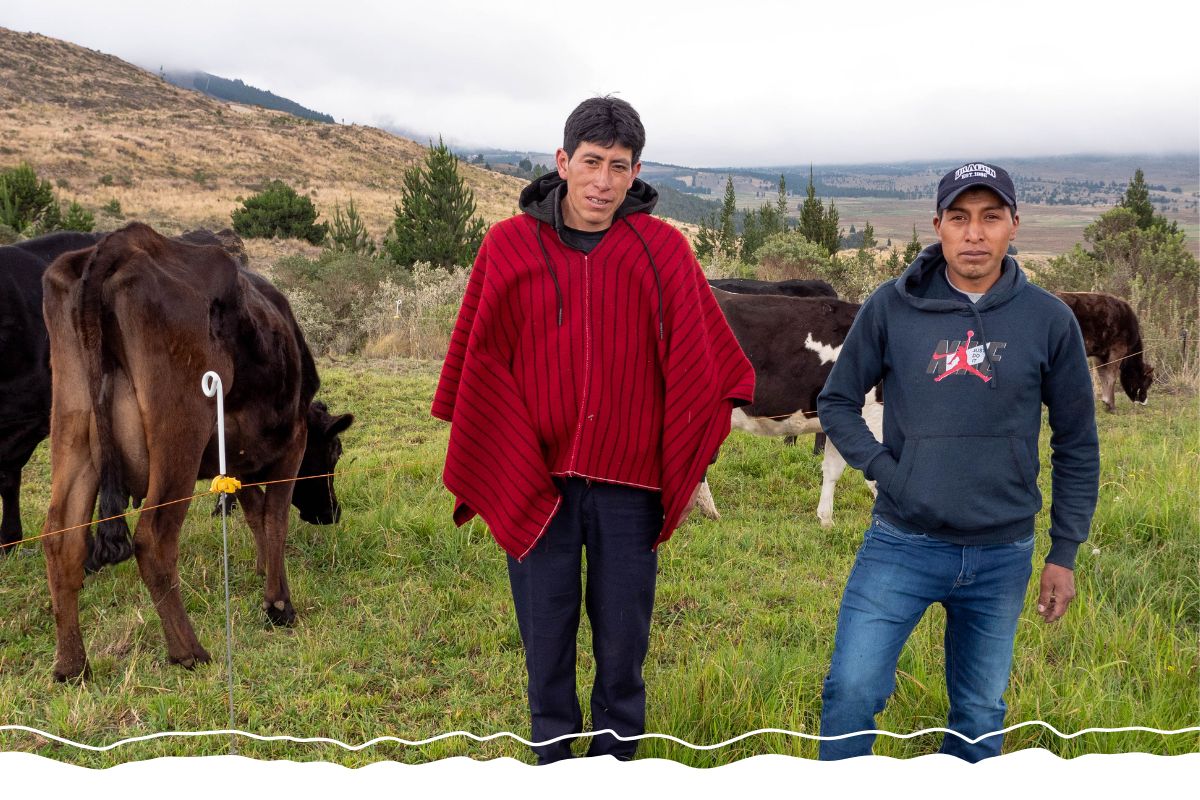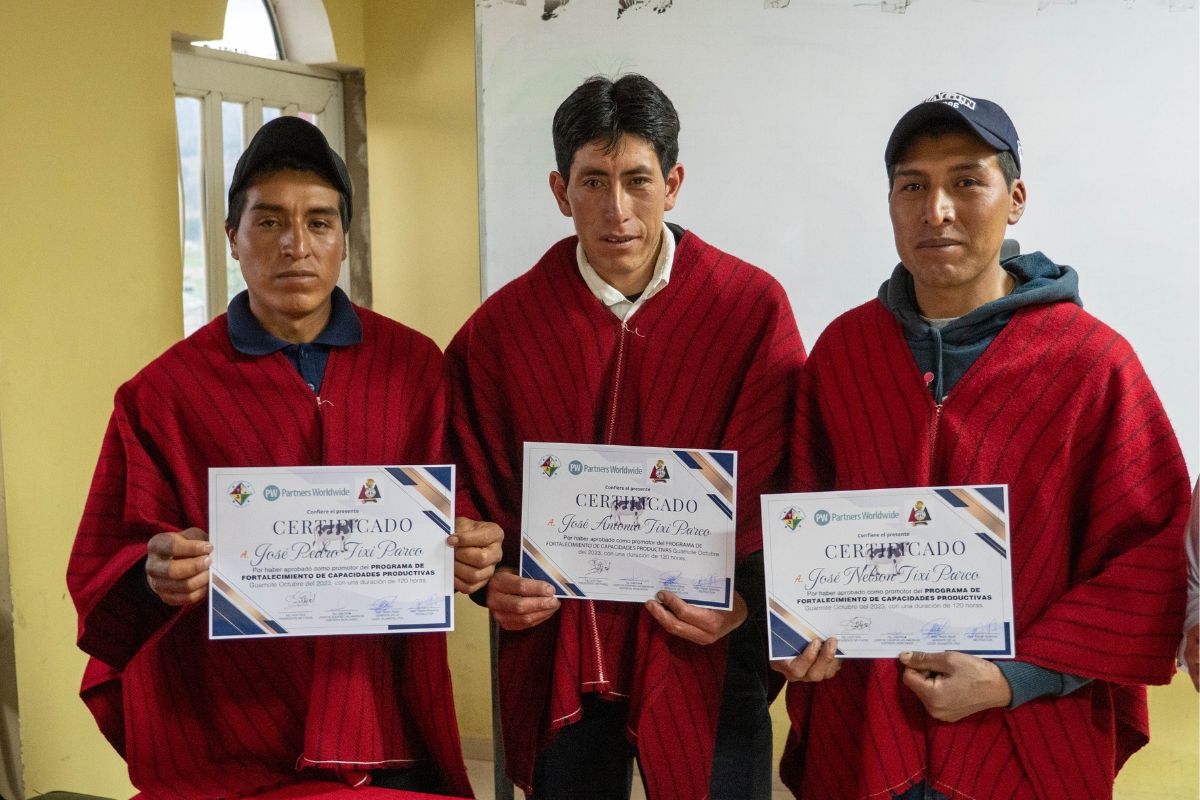A Dairy Farmer’s Journey from Vulnerability to Resilience

Buffeted by a cold wind, Nelson looked upon his farm in despair. His land, situated high in the Andes mountains of central Ecuador, was dry, brown, and withered. It had hardly rained the past few months, despite the pale clouds which enshrouded the nearby mountains—including distant Chimborazo, a colossal, snow-capped volcano—and there was no sign that the drought would end anytime soon.
Grazing unhappily upon the parched grass were a handful of dairy cows, his family’s livelihood. Without enough food to eat, the poor things were growing thinner and thinner. Worse, the cows weren’t producing enough milk: just 3 liters each per day. Much more of this drought, and Nelson’s family would be left with nothing.
His two brothers, Pedro and Antonio, were in the same boat. Like many in Guamote—a small highland town where the population is nearly 95% indigenous, compared to 25% nationwide—the brothers relied on selling milk in the local market to feed their families. The three of them needed to find a way to increase dairy production before their lives erupted into chaos.
Training with a Local Partner
The answer came in the form of a local partner of Partners Worldwide, Fundación Kawasaypak del Ecuador (FYKDE). When Nelson heard about FYKDE’s efforts to serve indigenous farming communities in and around Guamote, he knew he needed to get involved.
The three brothers quickly enrolled in FYKDE’s 120-hour training program. Throughout the program, the brothers learned the process of artificial insemination, how to keep their cows healthy and disease-free, and more. Crucially, Nelson and his brothers learned about silage, a process of preserving chopped grass for later use during seasons of drought. They have two tons of silage buried underground—enough for two to three months of feed.
Along the way, the brothers worked hand in hand with a passionate, skilled team of volunteer coaches, who were always there when needed. This team included our dear departed friend, Bill Hoekstra, who spent more than 20 years sharing his gifts with farmers in this community. Time and time again, Bill returned to Ecuador, forming lasting relationships with those in the Guamote community, always advocating for their dreams.
Thanks to this long-term relationship with coaches—many of them Business Affiliates (BAs)—Nelson and his brothers were able to be more proactive. When problems arose, they could ask for advice. And when there were things to celebrate, they all rejoiced together.

Equipped as Leaders
As they graduated from the training program, Nelson, Pedro, and Antonio wore matching red ponchos—the traditional color of their community. And they weren’t alone. Filling the room were fourteen other graduates and their family members, most wearing matching red. A symbol of pride, of community.
As graduates of this training program, Nelson and his brothers are now leaders in the Guamote community. They want to invest what they’ve learned in others, so that all may experience a more abundant life.
A Resilient Farm
There was a time when Nelson’s cows were producing, daily, just 3 liters of milk. Now, thanks to his careful cultivation, they can produce up to 60 liters a day. With his cows happy and healthy, so too is Nelson’s family.
You made this story of hope and resilience possible, through your support for Partners Worldwide. Thanks to you, Nelson doesn’t have to worry about the future. Instead, he can look upon his farm and smile, feeling confident in the results of his hard work.